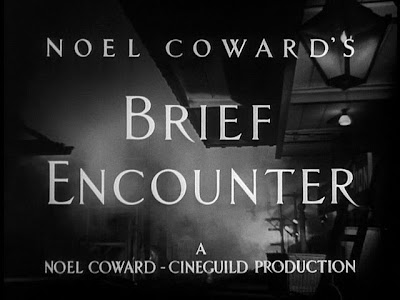I Know Where I'm Going?

Howdy. I went on a holiday. I went camping. I went camping round some of Scotland to places where films were filmed, or places that reminded me of certain films (just put that in there before it becomes obvious). The plan was to do a blog post for each day but that was when I thought I was just going to look at a disparate collection of films in different locations around the country.
That changed.
So what the hell was I thinking!? I don't know really, I did it because I love film and almost five years ago to the day I spent 10 days in Nairn watching films, and that was one of the greatest experiences of my life, so I think I thought I'd try and emulate that in some way. It was never going to be the same as the last time because that was in once place, with hundreds of others and there were beanbags lying about and readily available scones, but the idea was there to just enjoy films in a different way. That's where the first night came from and the choice of The Fearless Vampire Killers (Roman Polanski, 1967). I also chucked in a Belle & Sebastian gig so I had to buy a ticket, be in Inverness and that would make sure that I actually went through with the thing. The change of direction in the trip means that Day 01 no longer belongs here but it was a great start.
The second night took me to Loch Quoich for The NIght of the Hunter (Charles Laughton, 1955) a film in which the landscape is dreamlike, I know it wasn't shot in Scotland but remember the trip wasn't exactly planned that way, bear with me, I mean it wasn't even shot outside for crying out loud, except for some second unit stuff. Laughton makes the landscape and it's inhabitants, toads and that, weird; an uneasy balance between beauty and nightmare. Peter Kimptom wonders 'Did I really dream the film before I saw it?' and concludes that 'films can induce deja vu, but is it just an illusion or can we find a narrative familiar because it is so skilfully portrayed, so fundamental to our psyche, and so profoundly scares and comforts us? The Night of the Hunter still haunts me, and to this day I am not sure if I pursued it in the normal way, or if on some deeper, unknown level – like the forces of good and evil it evokes – it has been stalking me all along.' (Guardian, 2011). This sense of stalking is why I connected it to the haunting beauty of Loch Quoich and why it instantly sprang to mind on a visit there long ago. In Loch Quoich - no wait. Near, at the side of Loch Quoich I also watch Dead Man (Jim Jarmusch, 1995) and felt a similar tension to Johnny Depp's William Blake as he becomes one with his environment and the landscape to accept himself and his fate, and so this was the start of where this trip and these films were taking me.
 For the rest of the trip I watched films on their locations: Local Hero (Bill Forsyth, 1983), Breaking the Waves (Lars von Trier, 1996), Valhalla Rising (Nicolas Winding Refn, 2009), I Know Where I'm Going! (Michael Powell and Emeric Pressburger, 1945) and Death Watch (Bertrand Tavernier, 1980). Some drama, some comedy, some existential viking-y violence and a bit of sic-fi. The range of genres and time periods meant that I never really thought of a connection between them in the beginning other than I could go to places where they were filmed and watch them - cause I'm like that. That was it. That was the entire thought process, but that first night by Loch Quoich and the films I watched there had started me thinking about the importance of location and while travelling to these locations I then thought: Why make these films in Scotland? British directors like Bill Forsyth, and Michael Powell and Emeric Pressburger I could understand, Bill Forsyth is Scottish and Michael Powell had a long held love affair with Scotland, but why Danish directors Lars von Trier and Nicolas Winding Refn, or the French Bertrand Tavernier?
For the rest of the trip I watched films on their locations: Local Hero (Bill Forsyth, 1983), Breaking the Waves (Lars von Trier, 1996), Valhalla Rising (Nicolas Winding Refn, 2009), I Know Where I'm Going! (Michael Powell and Emeric Pressburger, 1945) and Death Watch (Bertrand Tavernier, 1980). Some drama, some comedy, some existential viking-y violence and a bit of sic-fi. The range of genres and time periods meant that I never really thought of a connection between them in the beginning other than I could go to places where they were filmed and watch them - cause I'm like that. That was it. That was the entire thought process, but that first night by Loch Quoich and the films I watched there had started me thinking about the importance of location and while travelling to these locations I then thought: Why make these films in Scotland? British directors like Bill Forsyth, and Michael Powell and Emeric Pressburger I could understand, Bill Forsyth is Scottish and Michael Powell had a long held love affair with Scotland, but why Danish directors Lars von Trier and Nicolas Winding Refn, or the French Bertrand Tavernier? |
| Local Hero at Camusdarach |
 |
| Valhalla Rising at Ardtoe |
 |
| I Know Where I'm Going! at Carsaig on the Isle of Mull |
There are probably more examples of Scottish landscape and it's impression on film, indeed an early draft of the trip also included a stop on the Isle of Harris for 2001: A Space Odyssey (Stanley Kubrick, 1968), where shots of the landscape were used in the famous kaleidoscopic 'transportation' scene but...but I ehh...I couldn't afford the ferry. Even so, if that's not testament to the uniqueness and evocative power of the Scottish landscape, I don't really know what is.



 The Scottish landscape is beautiful and rewarding but can be demanding and cruel. If you just take from it you destroy it and if you fail to accept it it can destroy you. If you give into it and lose yourself to it, it can be transformative and cinema is the same. If you just take from cinema, and I won't be so gauche as to name someone like Michael Bay here, you can draw your own conclusions as to who might fit the bill, you'll destroy it, you destroy everything that makes it beautiful and magical and challenging and rewarding. If you give yourself to it though it can become transformative.
The Scottish landscape is beautiful and rewarding but can be demanding and cruel. If you just take from it you destroy it and if you fail to accept it it can destroy you. If you give into it and lose yourself to it, it can be transformative and cinema is the same. If you just take from cinema, and I won't be so gauche as to name someone like Michael Bay here, you can draw your own conclusions as to who might fit the bill, you'll destroy it, you destroy everything that makes it beautiful and magical and challenging and rewarding. If you give yourself to it though it can become transformative.I cut the Sunday because I sort of came to this conclusion on Mull and the film on the Sunday didn't feel like a part of that - Yes, I could and would argue that landscape and character are tightly connected in Sergio Leone's westerns, but my reason for the choice of place and film weren't strong enough to tie it fully into this idea. The film and place remind me of a person, a person who has gone now and whom I miss dearly, they both have a strong connection to that person for me and so I felt that that would have been looking back to the past and I don't feel like doing that right now. Maybe I will one day, but not right now. Ta for your time, J











Comments
Post a Comment